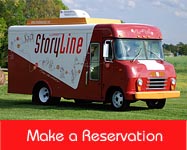A Sense of History
I like history. I think we have to know where we’ve been before we can understand how and why we got where we are now.
It’s true of the world at large, and a lot of what we call history is the recounting of momentous events and larger-than-life people doing momentous things. But I’m even more interested in small histories -- the very personal, intimate stories of individuals. The sum of our small histories gives texture and meaning to the larger sweep of mankind.
If you read one of my novels, you know the importance I attach to backstory. I have to know how my characters got here, how the baggage they tote from their past affects how they’re moving through the present. When I offer a story, I’m like a lawyer arguing a case before a jury. I need to give enough background to let you know that my story and characters are authentic. I need to offer what lawyers call extenuating and mitigating circumstances. In my new novel, The Governor’s Lady, I devote chapters to my central character’s history. In other works, it may be a sentence or paragraph here and there. But the backstory is crucial to me in understanding the character, and then presenting the character to my readers.
That really hit home when the Hallmark Hall of Fame folks were making a movie from my first novel, Home Fires Burning. I adapted the two-hour screenplay from a 500-page novel, so I had to leave out a great deal. But Glenn Jordan, the director, required the cast members to read the book before they came to the set, and I’m sure that in a thousand ways, they brought a richer understanding of their characters to the portrayal.
My love of histories large and small is what intrigues me about an oral history project going on these days in Winston-Salem, North Carolina. It’s called StoryLine, and it’s based on the premise that when people in a community share their stories, it fosters an understanding of what they have in common. StoryLine does its work from a small bus that serves as a studio. You and a story partner sit down before microphones and have a conversation about who you are and where you come from. Some of the stories, in edited form, air on local radio stations. They all go into an archive at the Forsyth County Library: a treasure trove for the community’s understanding of itself, now and in the future.
But you don’t have to have a studio in a bus to record history. Any kind of recording device will do just fine. The thing is to sit down with a friend or relative and just talk about who you are, how you got where you are now, your hopes and dreams. It’s especially important for the older generations in our families. Before it’s too late, preserve their stories. I wish I had been smart enough to do that with my parents. When they passed on, I lost a good bit of my own history. I’m poorer for that.
I once heard a semi-famous man say, “We never see the handwriting on the wall until our backs are to it.” I think he was right in the sense that we often turn our backs on our history and keep repeating mistakes. But it needn’t be that way. It takes having a sense of and appreciation for history – and then, like StoryLine, doing something about it.


